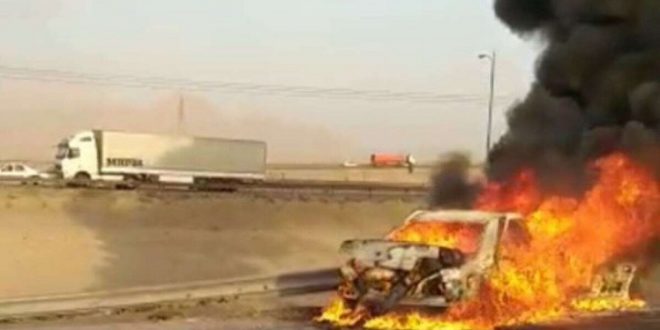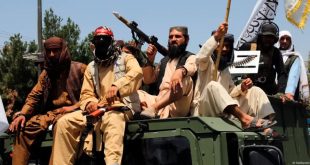By Arwin Rahi
As protests were raging in the U.S., in the aftermath of George Floyd’s killing by a Minneapolis police officer, Iranian leaders took to Twitter to support the protestors. Iran’s supreme leader Ayatollah Khamenei tweeted “If you’re dark-skinned walking in the US, you can’t be sure you’ll be alive in the next few minutes.” Later, Iran’s foreign minister Javad Zarif tweeted: “Some don’t think #BlackLivesMatter. To those of us who do: it is long overdue for the entire world to wage war against racism. Time for a #WorldAgainstRacism.”
The tweets were a bit rich, coming from both Khamenei and Zarif. In April 2020, Iranian border authorities tortured and threw nearly sixty Afghan migrants into a river. As a result, tens of Afghans drowned. Only thirty-four bodies have been recovered so far. Many are still missing, and there are fears that their bodies will never be recovered.
Notice the difference between the Greek and Iranian police forces: the Greeks save migrants and refugees from drowning, while the Iranians deliberately throw migrants into the river to drown.
Although Iran denies throwing Afghan migrants into the river, the evidence to the contrary is irrefutable.
In early June 2020, Iranian police in Yazd province fired live ammunition at a vehicle carrying Afghan refugees. The vehicle caught fire, burning three Afghans alive and injuring several others. On a video shared on social media, one of the passengers could be heard saying “Give me some water, I’m burning.”
Later, in a classic case of ‘adding insult to injury’ the Iranians let the Afghan ambassador to Iran visit the wounded passengers while they were tightly handcuffed to their hospital beds. How’s that for Mr. Zarif’s hashtag “#WorldAgainstRacism?” Similarly, in Khamenei’s tweet, if you replaced the phrases ‘dark-skinned’ and ‘the U.S.’ with ‘Afghans’ and ‘Iran’ respectively, you’d get a perfect sense of Afghans’ miserable conditions in Iran.
Discrimination against Afghans is pervasive, and dates back to the early days of their arrival in Iran in the late 1970s. Out of Iran’s 31 provinces, Afghans are not allowed to reside in 15 of them. In 12 other provinces, Afghans can reside in certain areas only. In the few provinces where Afghans can reside, they are still subjected to restrictions and discrimination. For instance, it’s not uncommon for Iranian authorities to bar Afghans from entering public places like parks and libraries.
Until recently, Afghan students’ access to education in Iran was limited. Those who enrolled in Iranian schools had to hide their Afghan identity. Otherwise they’d be placed in separate classes from Iranian students, and prohibited from taking part in sports and lab activities, among other forms of discrimination. Only in 2015, when Khamenei asked Iranian authorities to enroll Afghan students in Iranian schools, were some of the restrictions lifted. But why in 2015?
It was because of the Syrian civil war. Iran has been sending thousands of Afghans to Syria to fight alongside the Assad regime. In 2018, Iran admitted that more than 2000 Afghans had been killed and more than 8000 had been wounded fighting for Iran in Syria. It was in the middle of the Syrian civil war that, in order to win over Afghans residing in Iran, Khamenei decided to loosen restrictions on Afghan students’ access to education.
In addition to the Iranian government, segments of the Iranian society also openly discriminate against Afghans. State-controlled Iranian TV shows stereotype Afghans as “poor, uneducated, and inferior.” Afghans are also made scapegoats for crime and drug trafficking. Iranians regularly describe Afghans collectively as (افغانی آشغال) ‘Afghani aashghaal,’ literally meaning ‘trash Afghans.’
Moreover, discrimination against Afghans is widespread in the work place. Afghans face violence at work, they’re usually not paid on time or paid much less than Iranians would be paid for the same amount of work. In other words, the law in Iran doesn’t apply to Afghan workers.
Furthermore, Iranian businesses and stores insult and discriminate against Afghan customers. In 2019, a sign at an Alborz province store read: “The entry of Afghans into this store is forbidden.” The sign was reminiscent of a dark and racist era in U.S. history when African Americans weren’t permitted into “White-only” stores and restaurants. Welcome to Iran in 2019!
When Afghan authorities and media raise these problems, Iranians resort to a familiar tactic: they deny any wrongdoing, and blame the U.S. and outside forces for trying to derail Afghan-Iranian relations. In its own self-interest, Iran, every once in a while, reminds Afghans that Afghanistan and Iran share a religion, language, history and culture. If Iranians truly believed what they preached, they’d not look down on Afghans, but treat them with dignity and respect.
Afghans in Iran have been degraded, dehumanized, and subjected to discrimination and bigotry for decades. In addition to caring for George Floyd, it would be practically more helpful if Iranian leaders addressed racism and discrimination by their own government and people. Like Iranian refugees in Europe and North America, Afghan refugees in Iran should also be entitled to basic human rights. Is that too much to ask for? Perhaps it is, if you’re asking the Iranian government.
Arwin Rahi is an independent researcher, and a former adviser to the Parwan governor in Afghanistan. He’s written for Forbes, the National Interest, and BBC Persian, among others. He can be reached at [email protected].
 Afghanistan Times
Afghanistan Times




